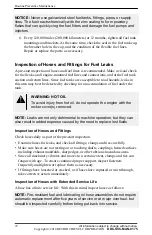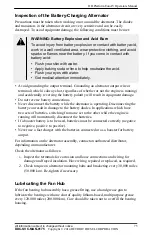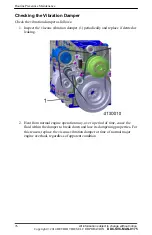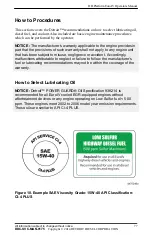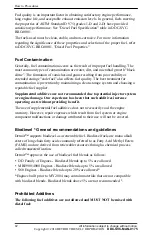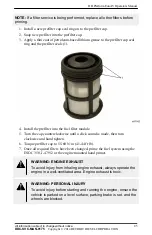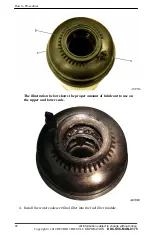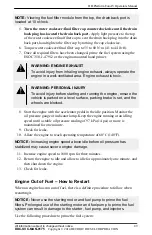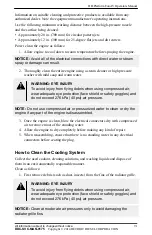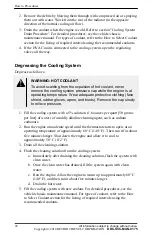
Fuel quality is an important factor in obtaining satisfactory engine performance,
long engine life, and acceptable exhaust emission levels. In general, fuels meeting
the properties of ASTM Standard D 975 (grades 1-D and 2-D) have provided
satisfactory performance. See "Diesel Fuel Specification" table in DDC-SVC-
BRO-0001.
The fuels used must be clean, stable, and non-corrosive. For more information
regarding the significance of these properties and selection of the proper fuel, refer
to DDC-SVC-BRO-0001, "Diesel Fuel Properties."
Fuel Contamination
Generally, fuel contamination occurs as the result of improper fuel handling. The
most common types of contamination are water, dirt, and microbial growth "black
slime". The formation of varnishes and gums resulting from poor stability or
extended storage "stale fuel" also affects fuel quality. The best treatment for
contamination is prevention by maintaining a clean storage system and choosing a
reputable fuel supplier.
Supplemental additives are not recommended due to potential injector system
or engine damage. Our experience has been that such additives increase
operating costs without providing benefit.
The use of supplemental fuel additives does not necessarily void the engine
warranty. However, repair expenses which result from fuel system or engine
component malfunctions or damage attributed to their use will not be covered.
Biodiesel
1
General recommendations and guidelines
Detroit™ supports biodiesel as a renewable fuel. Biodiesel fuels are mono alkali
esters of long chain fatty acids commonly referred to as Fatty Acid Methyl Esters
(FAME) and are derived from renewable resources through a chemical process
called transesterification.
Detroit™ approves the use of biodiesel fuel blends as follows:
• DD Family of Engines - Biodiesel blends up to 5% are allowed
• MBE900/4000 Engines - Biodiesel blends up to 5% are allowed
• S60 Engines - Biodiesel blends up to 20% are allowed*
*Engines built prior to MY 2004 may contain materials that are not compatible
with biodiesel blends. Biodiesel blends above 5% are not recommended
2
.
Prohibited Additives
The following fuel additives are not allowed and MUST NOT be mixed with
diesel fuel:
How to Procedures
82
All information subject to change without notice.
Copyright © 2014 DETROIT DIESEL CORPORATION
DDC-SVC-MAN-0175





